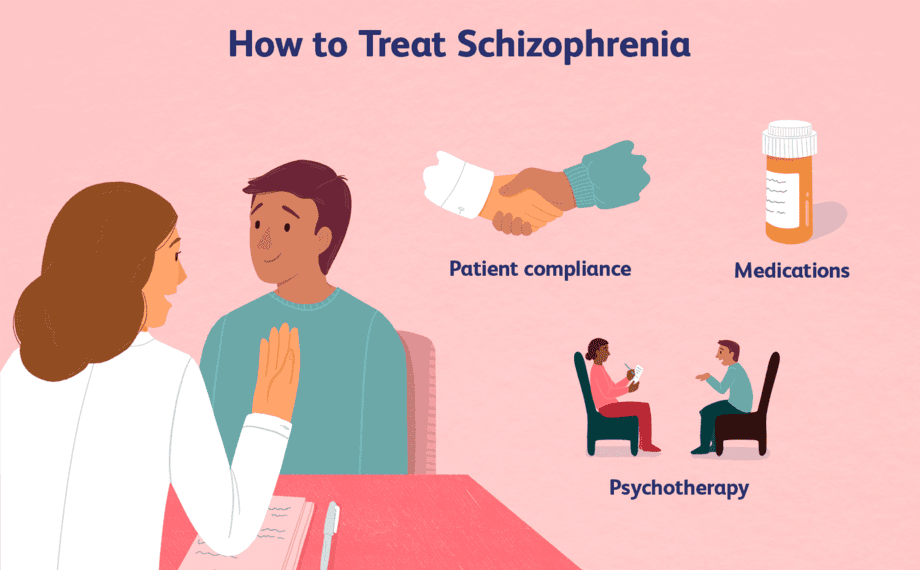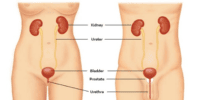What Is The Significance Of Antipsychotic Drugs In Treating Schizophrenia?

Schizophrenia is a chronic and severe mental disorder that affects approximately 1% of the global population. It is characterized by a range of symptoms, including hallucinations, delusions, disorganized thinking and speech, and impairments in social and occupational functioning.
Antipsychotic drugs, also known as neuroleptics, have played a significant role in the treatment of schizophrenia for over six decades. These medications work by modulating the activity of neurotransmitters in the brain, particularly dopamine, which is believed to be involved in the pathophysiology of schizophrenia.
There are two main classes of antipsychotic medications: first-generation or typical antipsychotics, and second-generation or atypical antipsychotics. While these drugs have shown effectiveness in reducing symptoms and preventing relapse, they are not without side effects, such as extrapyramidal symptoms and metabolic disturbances.
Adherence to long-term antipsychotic treatment can also be challenging for patients. Despite these limitations, antipsychotic drugs remain a cornerstone in the management of schizophrenia, and ongoing research aims to improve their efficacy and minimize adverse effects.
Key Takeaways
- Antipsychotic drugs play a significant role in treating schizophrenia.
- Movement disorders and metabolic side effects are associated with antipsychotic medication.
- Poor adherence to antipsychotic treatment can lead to negative outcomes such as relapse and functional impairment.
- New medications and personalized medicine approaches offer hope for improved treatment outcomes.
Understanding Schizophrenia and its Symptoms
Understanding the symptoms of schizophrenia is crucial in order to comprehend the significance of antipsychotic drugs in its treatment.
Schizophrenia is a chronic mental disorder characterized by a range of symptoms, including hallucinations, delusions, disorganized thinking, and impaired social functioning.
Schizophrenia diagnosis is based on a thorough evaluation of the individual’s symptoms, medical history, and ruling out other potential causes.
The impact of schizophrenia on daily life can be profound, affecting various aspects such as work, relationships, and self-care.
Individuals with schizophrenia often struggle to maintain employment, experience difficulties in forming and maintaining social connections, and may have challenges with daily tasks.
Antipsychotic drugs play a significant role in managing the symptoms of schizophrenia by reducing hallucinations, delusions, and improving cognitive functioning.
These medications target specific neurotransmitters in the brain, helping to restore balance and alleviate symptoms, ultimately enhancing the individual’s quality of life.
How Antipsychotic Drugs Work
This discussion will focus on the mechanisms of action of antipsychotic drugs, particularly their role in targeting neurotransmitters in the brain and regulating dopamine levels.
Antipsychotics work by blocking receptors for dopamine, a neurotransmitter that is thought to be involved in the development of psychotic symptoms.
By regulating the activity of dopamine in the brain, these medications can help alleviate the symptoms of schizophrenia and other psychotic disorders.
Targeting Neurotransmitters in the Brain
Targeting neurotransmitters in the brain is a crucial aspect of the therapeutic approach for schizophrenia, as it allows for the modulation of abnormal signaling pathways associated with the disorder. Neurotransmitter imbalances, such as an excess of dopamine, have long been implicated in the development of schizophrenia symptoms. Antipsychotic drugs work by blocking specific receptors for neurotransmitters, primarily dopamine, in order to reduce the overactivity of these neurotransmitters in certain areas of the brain. This modulation helps to alleviate positive symptoms like hallucinations and delusions. However, it is important to note that antipsychotic drugs may not be effective for all individuals with schizophrenia, as some individuals may develop drug resistance. In such cases, alternative treatment options or adjunctive therapies may be necessary to manage symptoms effectively.
| Neurotransmitter Imbalances | Drug Resistance |
|---|---|
| Excess dopamine levels in certain brain regions | Some individuals may not respond to antipsychotic drugs |
| Can contribute to positive symptoms of schizophrenia | Alternative treatment options or adjunctive therapies may be necessary |
| Targeted by antipsychotic drugs to reduce overactivity | Management of symptoms may require a personalized approach |
Regulating Dopamine Levels
Regulating dopamine levels in the brain is a key approach in managing symptoms of schizophrenia and involves modulating the overactivity of this neurotransmitter in specific brain regions. Antipsychotic drugs primarily target dopamine receptors to reduce the excessive dopamine signaling associated with schizophrenia. By blocking these receptors, antipsychotics decrease the transmission of dopamine, leading to a reduction in hallucinations, delusions, and other psychotic symptoms.
The importance of dopamine regulation cannot be overstated, as it has a profound impact on the overall well-being of individuals with schizophrenia.
Dopamine dysregulation is not limited to schizophrenia but is also implicated in other mental disorders such as bipolar disorder and attention-deficit/hyperactivity disorder (ADHD).
While antipsychotic medications are effective in managing dopamine levels, alternative methods for dopamine regulation, such as non-pharmacological interventions or novel therapeutic approaches, are being explored to improve treatment outcomes and mitigate potential side effects.
Types of Antipsychotic Medications
Different classes of antipsychotic medications have been developed to treat schizophrenia, including typical and atypical antipsychotics, each with their own unique mechanisms of action and side effect profiles.
Typical antipsychotics, also known as first-generation antipsychotics, primarily block dopamine D2 receptors in the brain, reducing the activity of dopamine and alleviating positive symptoms of schizophrenia. However, they are associated with extrapyramidal side effects such as muscle stiffness and tremors.
On the other hand, atypical antipsychotics, also known as second-generation antipsychotics, not only block dopamine receptors but also affect other neurotransmitter systems, such as serotonin and glutamate. This broader mechanism of action is believed to improve both positive and negative symptoms of schizophrenia, with fewer extrapyramidal side effects.
Examples of typical antipsychotics include haloperidol and chlorpromazine, while atypical antipsychotics include risperidone and clozapine.
The choice of antipsychotic medication depends on the individual’s symptom profile, response to treatment, and tolerability of side effects.
Effectiveness of Antipsychotic Drugs
The efficacy of antipsychotic medications in managing symptoms of schizophrenia has been extensively studied, with numerous clinical trials demonstrating their effectiveness in reducing positive symptoms, improving overall functioning, and preventing relapse.
Specifically, antipsychotic drugs have been found to be effective in the following ways:
- Reduction of positive symptoms: Antipsychotics target and alleviate hallucinations, delusions, and disorganized thinking, which are common positive symptoms of schizophrenia.
- Improvement of overall functioning: These medications help individuals with schizophrenia regain their ability to think clearly, communicate effectively, and engage in daily activities.
- Prevention of relapse: Antipsychotics are crucial in preventing the recurrence of psychotic episodes and maintaining stability in individuals with schizophrenia.
It is important to note that effectiveness evaluation of antipsychotic drugs should be conducted regularly to monitor the response and adjust treatment accordingly.
While alternative treatments exist, such as psychosocial interventions, antipsychotic medications remain the primary and most effective intervention for managing schizophrenia symptoms.
Potential Side Effects of Antipsychotic Medication
This paragraph discusses potential side effects of antipsychotic medication, specifically focusing on movement disorders and metabolic side effects.
Movement disorders, such as extrapyramidal symptoms and tardive dyskinesia, are common side effects associated with the use of antipsychotic drugs. These disorders can manifest as tremors, rigidity, and abnormal movements, impacting the patient’s motor functioning.
Additionally, antipsychotic medication may lead to metabolic side effects, including weight gain, increased cholesterol levels, and insulin resistance, which can contribute to the development of metabolic syndrome and other health complications.
Movement Disorders
Movement disorders, such as tardive dyskinesia and parkinsonism, can be observed as adverse effects of antipsychotic drugs used in the treatment of schizophrenia. Tardive dyskinesia is characterized by involuntary movements of the face, tongue, and limbs, while parkinsonism presents with symptoms similar to Parkinson’s disease, including tremors, rigidity, and bradykinesia. These movement disorders can significantly impact a patient’s quality of life and may persist even after discontinuation of antipsychotic medication. The risk of developing these side effects varies depending on the specific antipsychotic drug used, with second-generation (atypical) antipsychotics generally having a lower risk compared to first-generation (typical) antipsychotics. It is crucial for healthcare providers to carefully monitor patients for the development of movement disorders and adjust treatment accordingly to minimize their impact on patients’ well-being.
| Movement Disorder | Description |
|---|---|
| Tardive dyskinesia | Involuntary movements of the face, tongue, and limbs |
| Parkinsonism | Symptoms similar to Parkinson’s disease, including tremors, rigidity, and bradykinesia |
Metabolic Side Effects
Previous research has highlighted the association between antipsychotic drugs and movement disorders, such as tardive dyskinesia. However, it is important to recognize that antipsychotic medications can also lead to metabolic side effects.
One of the most common metabolic side effects is weight gain, which can occur rapidly after initiating treatment. This weight gain is often linked to an increased risk of metabolic syndrome, a cluster of conditions including high blood pressure, high blood sugar, and abnormal cholesterol levels.
The mechanism behind these metabolic side effects is not completely understood, but it is believed to involve a combination of factors, including changes in appetite regulation, alterations in glucose and lipid metabolism, and the role of specific receptors targeted by antipsychotic medications.
Clinicians must carefully monitor and manage these metabolic side effects to ensure the overall well-being of individuals with schizophrenia receiving antipsychotic treatment.
Long-Term Adherence to Antipsychotic Treatment
Long-term adherence to antipsychotic treatment is a critical aspect to consider in the management of schizophrenia. The effectiveness of antipsychotic drugs in treating schizophrenia is heavily dependent on patients’ consistent and continued use of medication. Poor adherence to antipsychotic treatment can have detrimental effects on long-term outcomes, leading to an increased risk of relapse, hospitalization, and overall functional impairment.
Studies have shown that approximately 50% of individuals with schizophrenia do not adhere to their prescribed antipsychotic medication regimen. Several factors contribute to non-adherence, including medication side effects, lack of insight into their illness, cognitive deficits, and stigma associated with taking psychiatric medication.
Therefore, efforts to promote long-term adherence to antipsychotic treatment are crucial in optimizing treatment outcomes and enhancing the overall quality of life for individuals with schizophrenia.
Challenges and Limitations of Antipsychotic Treatment
One major challenge in the management of schizophrenia is the limited efficacy and tolerability of available treatment options. While antipsychotic drugs have revolutionized the treatment of schizophrenia, they are not without their limitations.
One of the main challenges is the side effects associated with these medications. Common side effects include extrapyramidal symptoms such as tremors, stiffness, and involuntary movements. These side effects can significantly impact patients’ quality of life and may lead to poor adherence to treatment.
Additionally, antipsychotic drugs may not be effective for all individuals with schizophrenia. Some patients may not experience significant symptom improvement or may only respond partially to treatment.
Moreover, antipsychotic medications do not address the cognitive impairments and negative symptoms associated with schizophrenia, which can further limit their overall efficacy.
Therefore, while antipsychotic drugs play a crucial role in managing schizophrenia, their challenges and limitations highlight the need for the development of more effective and tolerable treatment options.
Future Directions in Schizophrenia Treatment
This paragraph discusses the future directions in schizophrenia treatment. Specifically, it focuses on the development of new antipsychotic medications and personalized medicine approaches.
The development of new antipsychotic medications aims to improve the efficacy and reduce the side effects associated with currently available medications.
Personalized medicine approaches involve tailoring treatment based on an individual’s unique genetic makeup, allowing for more targeted and effective interventions.
Development of New Antipsychotic Medications
The advancement of pharmacological research has led to the development of new antipsychotic medications, which have revolutionized the treatment of schizophrenia by offering improved efficacy and reduced side effects. These new medications have emerged through rigorous processes of new drug development and clinical trials.
Some notable developments in the field include:
- Dopamine D2 receptor partial agonists: These medications offer a more balanced approach to dopamine receptor modulation, reducing the risk of side effects such as extrapyramidal symptoms.
- Serotonin-dopamine activity modulators: These medications target both serotonin and dopamine receptors, offering a dual mechanism of action that may improve symptoms and cognitive functioning.
- Glutamate receptor modulators: This class of medications targets the glutamate system, which plays a crucial role in the pathophysiology of schizophrenia. They hold promise in improving negative symptoms and cognitive deficits.
- Long-acting injectable formulations: These formulations provide extended-release of medication, allowing for better adherence to treatment and reducing the risk of relapse.
Overall, the development of new antipsychotic medications brings hope for improved outcomes and quality of life for individuals with schizophrenia.
Personalized Medicine Approaches
Personalized medicine approaches hold the potential to revolutionize the treatment of schizophrenia by tailoring interventions to individual patients, evoking a sense of hope and optimism for improved outcomes and a better quality of life.
One approach that is gaining traction is the use of genetic testing to inform treatment decisions. By analyzing an individual’s genetic profile, clinicians can identify specific genetic variations that may impact their response to antipsychotic medications. This information can then be used to guide medication selection, dosage adjustments, and predict potential side effects.
Additionally, genetic testing can help identify individuals who may be at a higher risk of developing certain side effects, allowing for proactive monitoring and management.
While still in its early stages, personalized medicine approaches have the potential to optimize treatment outcomes, minimize side effects, and improve the overall effectiveness of antipsychotic drugs for individuals with schizophrenia.
Frequently Asked Questions
Are there any alternative treatments for schizophrenia besides antipsychotic drugs?
Alternative treatments for schizophrenia, such as holistic approaches, are being explored to complement antipsychotic drugs. These may include cognitive behavioral therapy, psychosocial interventions, family therapy, and supported employment, aiming to improve overall functioning and quality of life for individuals with schizophrenia.
How long does it take for antipsychotic drugs to start working and show improvement in symptoms?
Antipsychotic drugs typically take several weeks to start working and show improvement in symptoms of schizophrenia. While they can be effective in reducing psychotic symptoms, they may also have side effects that vary among individuals.
Can antipsychotic drugs be used to treat other mental health conditions besides schizophrenia?
Antipsychotic drugs have shown effectiveness in treating other mental health conditions besides schizophrenia. However, their potential side effects must be carefully considered. Further research is needed to fully understand their effectiveness and safety in these conditions.
Are there any non-pharmacological interventions that can be used in conjunction with antipsychotic drugs for better treatment outcomes?
Non-pharmacological interventions, such as cognitive-behavioral therapy (CBT) and psychosocial rehabilitation, can complement antipsychotic drugs in the treatment of schizophrenia. These interventions have been shown to improve treatment outcomes and reduce symptom severity.
What are the factors that can affect long-term adherence to antipsychotic treatment?
Factors that can affect long-term adherence to antipsychotic treatment include patient-related factors such as lack of insight, side effects, and stigma, as well as treatment-related factors like medication efficacy, dosage, and healthcare provider support.









